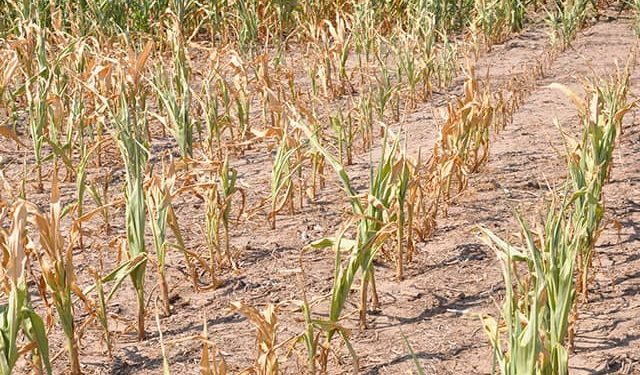Farmers in Northern Ghana are raising alarms over the potential for severe food insecurity next year as a prolonged drought continues to ravage the region. For nearly two months, the Northern Region has experienced erratic and insufficient rainfall, leaving crops withered and farmers in despair. The ongoing dry spell threatens not only the current harvest but also the future of agriculture in the area.
A visit by Zaa News to farms in the region revealed fields of dying crops, with maize and rice particularly hard hit. Afa Shahadu, a farmer from the Kanfehi-yili community along the Kumbungu road, expressed grave concerns about the possibility of a food shortage in the coming year. “Yes, it’s possible we may experience food shortage due to this drought. As we speak today, no matter how much rain we get now, most of our crops will never survive,” Shahadu lamented.
The impact of the drought extends beyond crop failure. Shahadu also shared his frustration over the financial losses incurred after applying fertilizer to his farm, only to see no rain follow. “I just applied fertilizer about a month ago, and ever since then, we haven’t received any rainfall. This means that I just wasted the fertilizer. We spent a lot of money on our farms, yet there’s no value for our investment. This means we are making losses,” he stressed.
In addition to the crop failures, the drought has also led to skyrocketing food prices. Shahadu warned traders who are taking advantage of the situation by raising the price of maize per bag. “They keep on increasing the price of a bag of maize, even up to GHC 700 per bag. But they should be mindful of their actions. When farmers are unable to produce, they will not be able to sell as well,” he cautioned.
The drought’s devastating effects are not limited to maize. Rice farms in the region are also suffering. Chanzeni Jahafo, a physically challenged rice farmer, shared his heartbreak over the destruction of his crops. “Already, I am disabled, but I didn’t use that as an excuse to sit aloof. I am a farmer, and that is where I earn my living. But what can I do? My rice farm is completely destroyed by the drought. I don’t even want to come close to the farm again because of the level of destruction. Now I am confused. It’s God’s will, what can we do?” Jahafo said, his voice filled with despair.
In the face of this environmental crisis, Abdullah Mohammed, a policy evaluation officer with Changing Lives in Innovative Partnership (CLIP), called on the public to stop cutting down trees and engaging in bush burning to help sustain the environment. According to Mohammed, the drought is a result of the depletion of the ozone layer, and he urged farmers to adopt tree planting and irrigation farming as part of the solution. “Please, let’s stop cutting down trees and bush burning. I believe that’s what is causing this drought. When we continue to destroy our environment, these are the effects we will see,” Mohammed warned.
As the drought drags on with no end in sight, the future of agriculture in Northern Ghana remains uncertain, and the fear of an impending famine looms large over the region.
Source: zaaradio.com/Alhassan Sulemana Tarimbia


